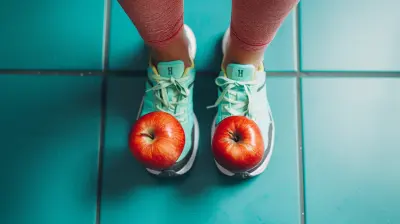Alternative Sweeteners That Are Safe for Diabetics
5 May 2025
If you're living with diabetes or simply trying to cut back on sugar, you might be wondering: What sweeteners can I actually use without spiking my blood sugar? The good news is that there are plenty of safe alternatives that won't wreak havoc on your glucose levels.
In this article, we'll break down the best alternative sweeteners for diabetics, explaining how they work, their benefits, and any potential side effects. Ready to satisfy your sweet tooth the smart way? Let’s dive in!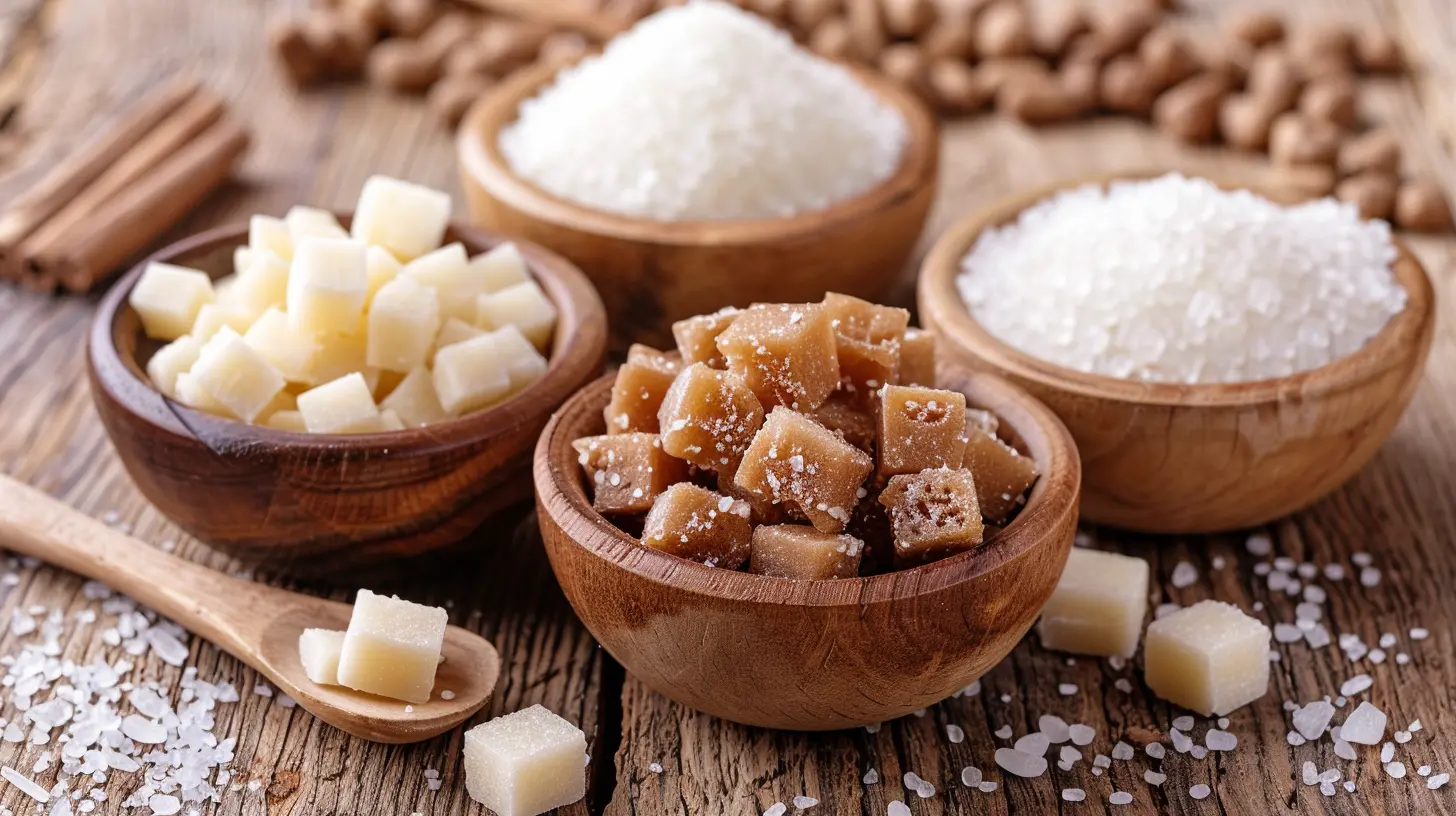
Why Sugar Is a No-Go for Diabetics
Before we talk about sugar substitutes, let's quickly address why regular sugar is problematic for diabetics.When you eat sugar, it rapidly converts into glucose in your bloodstream, causing blood sugar levels to rise. For people with diabetes, whose bodies either don’t produce enough insulin or can’t use it efficiently, consuming sugar can lead to dangerous spikes. Over time, high blood sugar can contribute to complications like nerve damage, heart disease, and kidney problems.
So, finding safe and natural alternatives is key. But not all sugar substitutes are created equal—some can still impact blood sugar, while others may come with side effects. Let's go through the best options available. 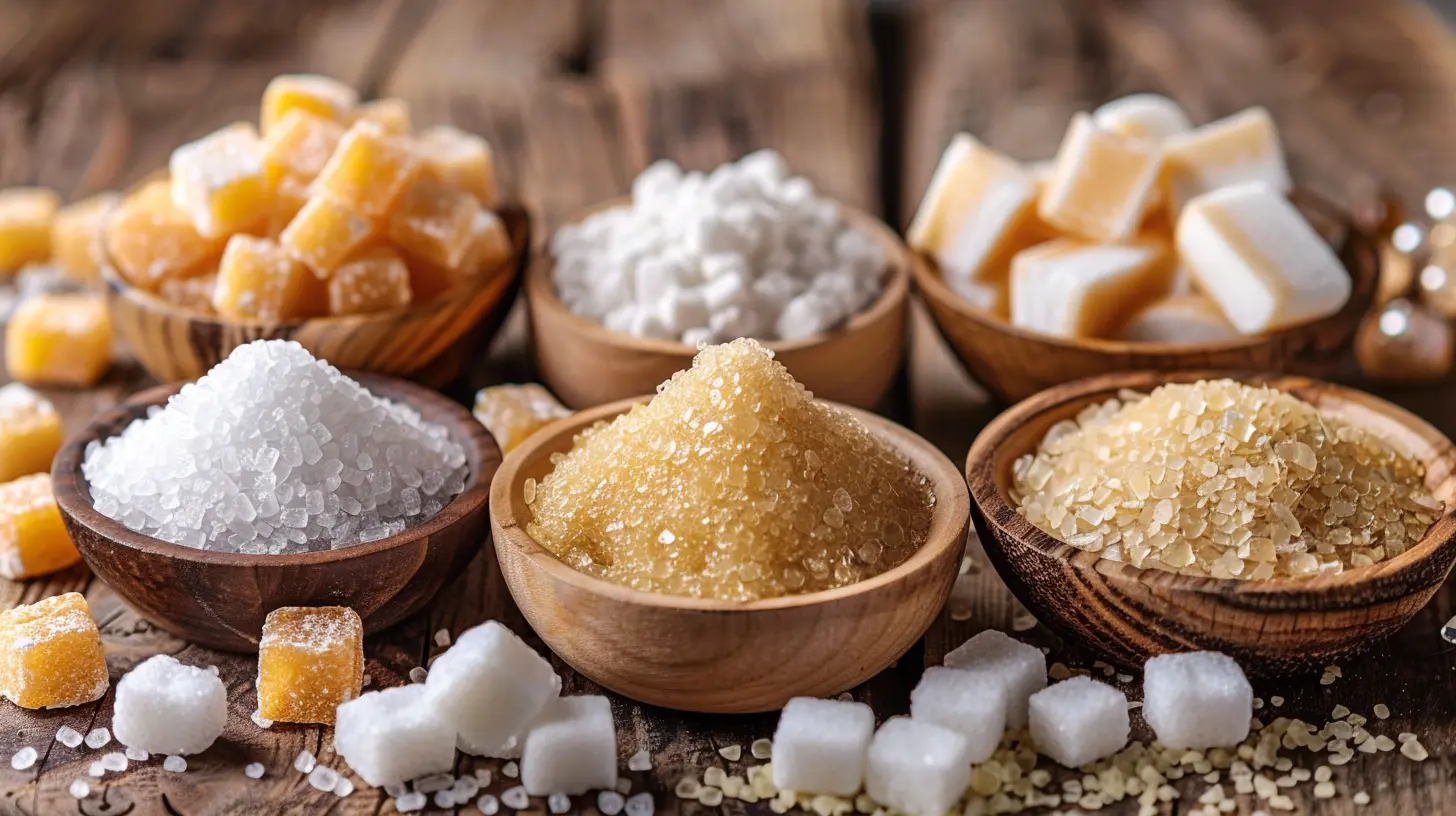
Best Alternative Sweeteners for Diabetics
1. Stevia
What Is It?
Stevia is a natural, plant-based sweetener extracted from the leaves of the Stevia rebaudiana plant. It's been used for centuries and is now commonly available in both liquid and powder form.Why Is It Safe?
Stevia is completely carb-free and doesn’t raise blood sugar levels, making it an excellent choice for diabetics. Plus, it’s about 200-300 times sweeter than sugar, so you only need a tiny amount!Potential Downsides
Some people find stevia has a slightly bitter aftertaste. To avoid this, opt for high-quality brands that offer purified versions without fillers.Best Ways to Use It
- Sweeten coffee or tea- Add to baked goods (be mindful of conversion ratios)
- Use in smoothies or yogurt
2. Monk Fruit Sweetener
What Is It?
Monk fruit sweetener comes from the extract of monk fruit, a small melon native to Southeast Asia. It contains compounds called mogrosides that provide sweetness without the calories or carbs.Why Is It Safe?
Like stevia, monk fruit sweetener has zero impact on blood sugar. It’s also packed with antioxidants, which can provide additional health benefits.Potential Downsides
Some monk fruit sweeteners on the market are blended with other sweeteners like dextrose, which can affect blood sugar levels. Always check the ingredient list before purchasing.Best Ways to Use It
- Mix into your morning coffee- Use in keto-friendly desserts
- Sprinkle on oatmeal or cereal
3. Erythritol
What Is It?
Erythritol is a sugar alcohol that occurs naturally in some fruits but is commercially produced from fermenting corn or wheat starch.Why Is It Safe?
Erythritol contains almost no calories and has a glycemic index of zero, meaning it won’t cause blood sugar spikes. Since it's about 70% as sweet as sugar, you can use it in similar quantities.Potential Downsides
Large amounts may cause digestive discomfort, like bloating or gas. But unlike other sugar alcohols (like maltitol or sorbitol), erythritol is more easily absorbed and less likely to cause issues.Best Ways to Use It
- Baking low-carb cookies or cakes- Sweetening beverages
- Making homemade ice cream
4. Xylitol
What Is It?
Xylitol is another sugar alcohol that is naturally found in small amounts in fruits, vegetables, and birch trees. It has a sweetness similar to sugar but with fewer calories.Why Is It Safe?
Xylitol has a low glycemic index (around 7), meaning it has minimal impact on blood sugar. Additionally, it’s known for improving dental health by preventing bacterial growth in the mouth.Potential Downsides
While generally safe for humans, xylitol is highly toxic to dogs—so be sure to keep it away from your furry friends. It may also cause digestive upset in some people when consumed in large amounts.Best Ways to Use It
- Sugar-free gum and mints- Baked goods
- Homemade candies
5. Allulose
What Is It?
Allulose is a rare sugar found naturally in small amounts in foods like figs, raisins, and wheat. Unlike regular sugar, it has about 90% fewer calories.Why Is It Safe?
Allulose doesn’t spike blood glucose or insulin levels, making it a fantastic option for diabetics. It also has a taste and texture very similar to sugar, which makes it great for baking.Potential Downsides
Consuming too much allulose can lead to mild digestive issues (like bloating or gas), but most people tolerate it well in moderate amounts.Best Ways to Use It
- Sweetening coffee or tea- Baking soft, chewy cookies
- Making syrups or sauces
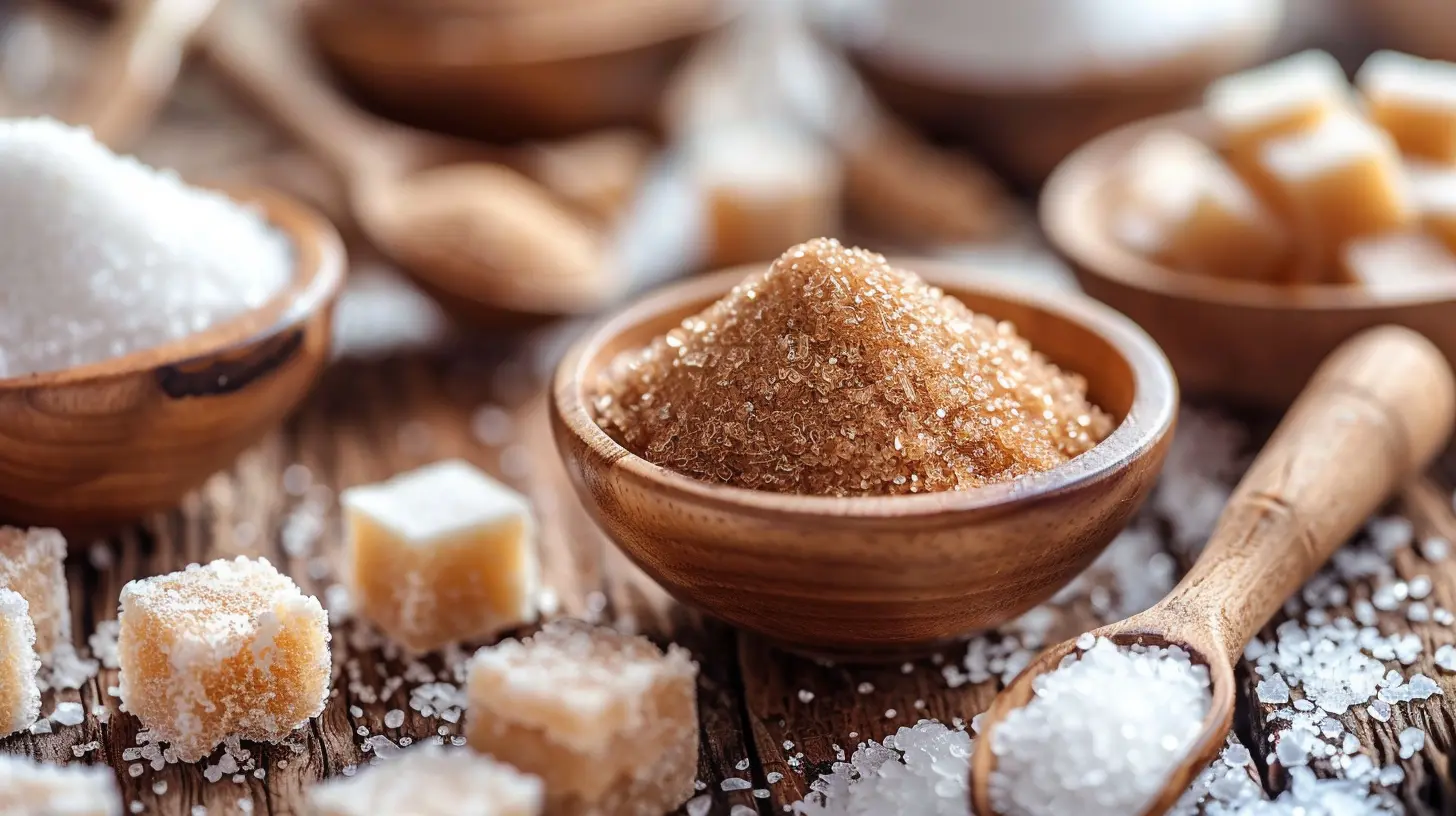
Sweeteners to Avoid
Not all sugar substitutes are safe for diabetics. Some may still impact blood sugar or come with potential health risks. Here are a few to watch out for:❌ Aspartame (Equal, NutraSweet)
Although it's widely used in diet sodas and sugar-free products, aspartame has been linked to various health concerns. It can also cause blood sugar fluctuations in some individuals.❌ Saccharin (Sweet'N Low)
This artificial sweetener has been controversial for years, with studies suggesting it may have negative effects on gut health and glucose metabolism.❌ Sucralose (Splenda)
Sucralose is often marketed as a safe sugar substitute, but research indicates it might still affect insulin sensitivity and gut bacteria.❌ Maltitol
Commonly found in sugar-free candies, maltitol can raise blood sugar and cause digestive issues. It has a glycemic index close to 35, which is quite high for diabetics.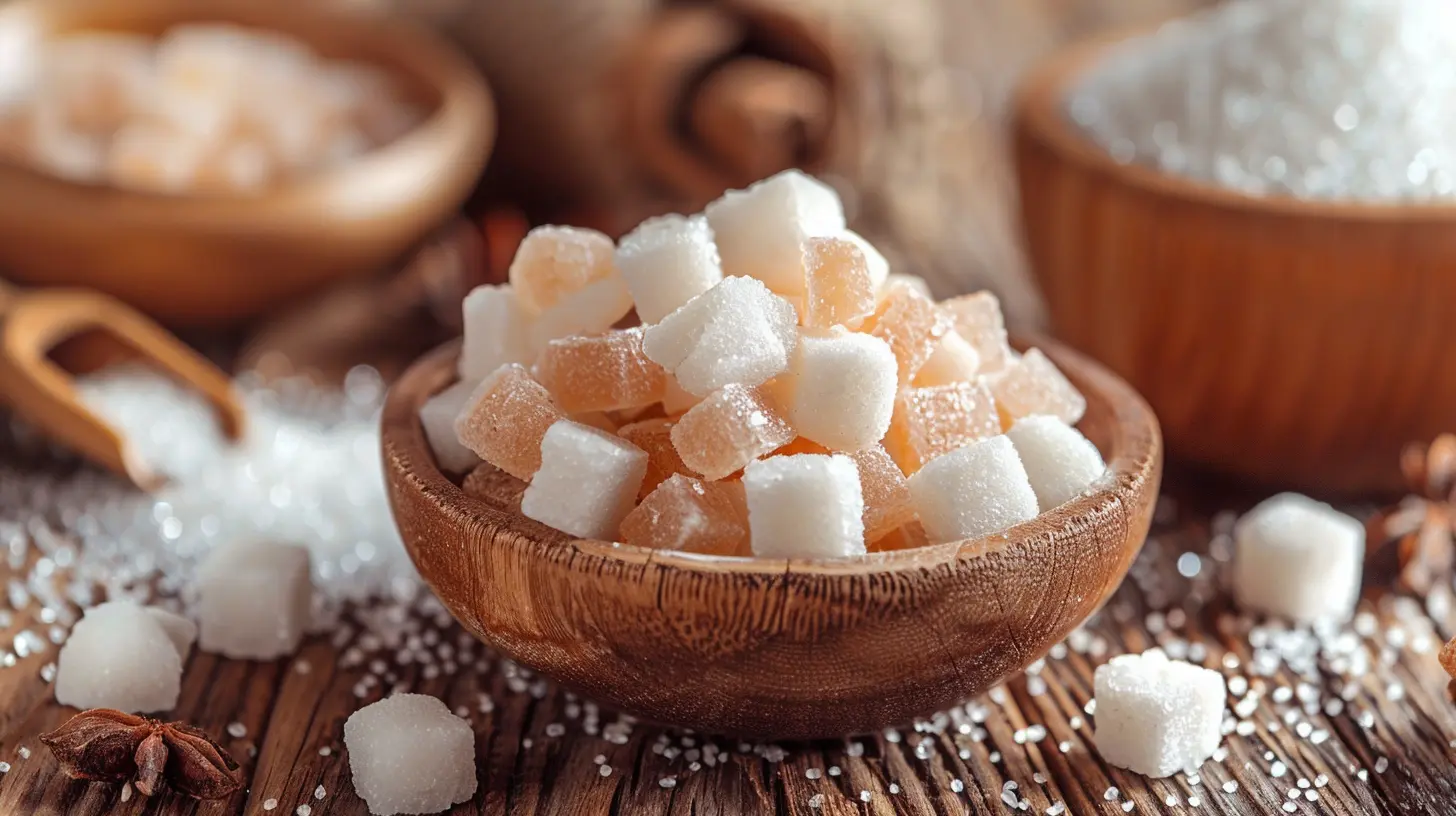
Final Thoughts
Managing diabetes doesn’t mean you have to say goodbye to sweetness forever. With the right sugar alternatives—like stevia, monk fruit, erythritol, xylitol, and allulose—you can still enjoy desserts, drinks, and snacks without worrying about blood sugar spikes.However, everyone's body responds differently, so it’s always a good idea to test your blood sugar after consuming a new sweetener and see how it affects you. And remember: moderation is key!
Got a favorite diabetic-friendly sweetener? Share your thoughts in the comments below!
all images in this post were generated using AI tools
Category:
DiabetesAuthor:

Laurie Barlow
Discussion
rate this article
3 comments
Helen Martinez
In the realm of taste, where sweetness blooms, Alternative whispers dance, dispelling the glooms. For diabetics seeking joy, a gentle embrace, These safe sweeteners beckon, with health in their grace, A delightful journey, where flavor finds space.
May 14, 2025 at 2:31 AM

Laurie Barlow
Thank you for your poetic reflection! I'm glad you appreciate the exploration of safe sweeteners for diabetics. Your words beautifully capture the essence of finding joy in healthier choices.
Fable Luna
Great article! Exploring alternative sweeteners is crucial for diabetics. Your insights on safety and health benefits are highly informative and appreciated. Thank you!
May 10, 2025 at 4:03 PM

Laurie Barlow
Thank you for your kind words! I'm glad you found the insights helpful for managing diabetes.
Lacey McGhee
Great article! It's crucial for diabetics to explore safe sweeteners. Remember to consider individual reactions, and consult with a healthcare provider to find the best options for your dietary needs. Keep up the informative posts!
May 7, 2025 at 3:15 AM

Laurie Barlow
Thank you for your thoughtful comment! I completely agree—individual responses vary, and consulting with a healthcare provider is essential for making the best choices. I appreciate your support!

